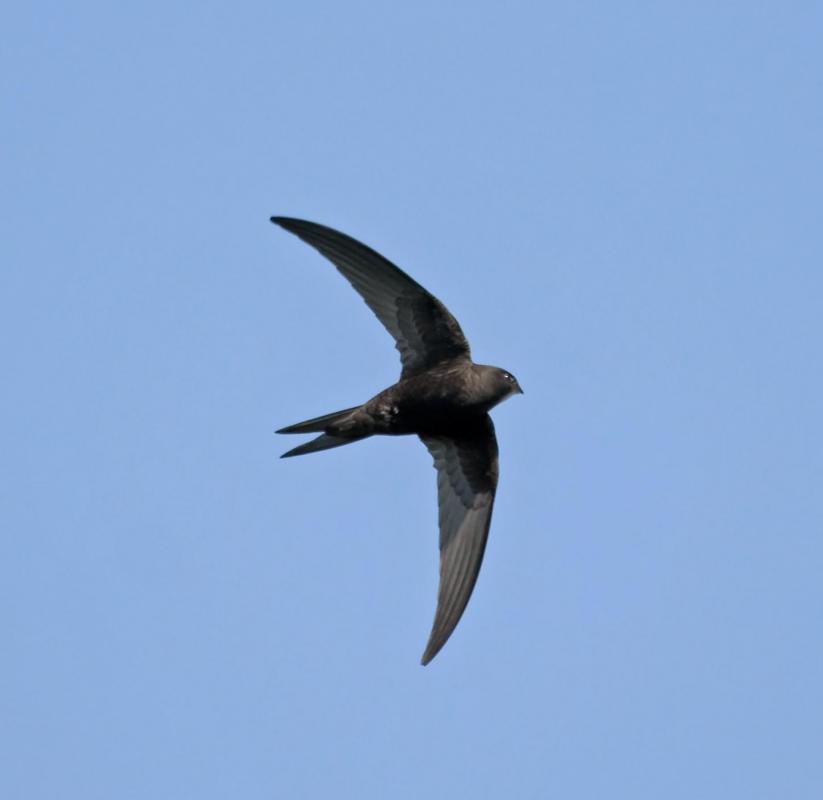At AllThingsNature, we're committed to delivering accurate, trustworthy information. Our expert-authored content is rigorously fact-checked and sourced from credible authorities. Discover how we uphold the highest standards in providing you with reliable knowledge.
What Are the Different Uses of Bird Saliva?
Very few people associate birds with having saliva. At the very least, few people associate bird saliva as having different uses; however, it does have applications outside of the bird's own mouth. Bird saliva can be used as a nest-building tool, a culinary ingredient, and a component of traditional medicine.
Some species of birds, including swifts and hummingbirds, use their saliva in the building of their nests. The swift, for example, projects a large amount of saliva against a surface, such as a tree trunk, providing an anchor for the nest. They then build up the nest in continuing layers of bird saliva along with the odd inclusion of objects such as feathers, twigs, and other plant material. The resulting nest is a fairly smooth, deep, bowl shape. Saliva is an ideal building component as it is thick and dries quickly.

Bird saliva also forms the base of a traditional Chinese delicacy, swallow's nest soup. The nests used in this very expensive dish are produced by male swiftlets, found mainly in China and Thailand. This dish is considered very prestigious and so is highly sought after. To keep up with demand, a number of nesting sites are man-made.
The most prized ingredient for this delicacy are the white nests produced by the Edible-nest and Pacific swiftlets. These are subsequently graded into levels of quality, with the highest being those nests collected first in the harvesting season before the chicks are hatched. Nests are cleaned after grading to remove any extraneous material.

The nests are composed almost exclusively of bird saliva. To make the soup, cooks soak the nests in water, causing them to swell and soften. This allows any embedded material to be removed. They then place the nests in a pot and cover them with water. After approximately 15 minutes of simmering, rock sugar goes into the pot. Cooks simmer this mixture for a further hour before serving.
The resulting soup is thick and gelatinous, with the majority of the nest having dissolved. Bird saliva soup is very popular in America and Hong Kong, who are the biggest importers of the nests. Eating the soup is thought to increase the libido and sharpen mental focus. The benefits from eating it are thought to be so important that no seasoning should be added.
Bird saliva is thought to have additional health benefits, and nests are popularly used in traditional Chinese and Vietnamese medicine. It is considered to be an excellent restorative for the lungs and is used to alleviate asthma and other respiratory disturbances. The nests, which contain calcium, zinc, and iron, are also thought to encourage growth and improve the circulation of the blood. Finally, the saliva has also long been used as an antiaging tonic and immune system enhancer, improving general health and helping to prevent colds and the flu.
Frequently Asked Questions
What is bird saliva primarily used for in the wild?
Bird saliva is primarily used for nest construction. Many bird species, like swiftlets, use their saliva to bind together materials or, in the case of the edible-nest swiftlet, to create the entire nest structure. This saliva hardens upon exposure to air, providing a durable and secure environment for their eggs and chicks.
How is bird saliva used in human cuisine?
Bird saliva, specifically from the edible-nest swiftlet, is a prized ingredient in Chinese cuisine. It is the main component of bird's nest soup, a delicacy believed to offer health benefits such as improved digestion, skin health, and immune function. The nests are harvested from cave walls and can fetch high prices on the market.
Are there any medicinal uses for bird saliva?
Yes, bird saliva, especially from the edible-nest swiftlet, is believed to have medicinal properties. Traditional Chinese Medicine (TCM) has used it for centuries, claiming it aids in recovery from diseases, enhances the immune system, and promotes overall longevity. However, scientific evidence to fully support these claims is limited.
What makes bird's nest soup so expensive?
Bird's nest soup is expensive due to the rarity and difficulty of harvesting the nests, which are often located in dangerous and inaccessible locations like high cave ceilings. Additionally, the process of cleaning the nests to remove feathers and debris is labor-intensive. The high demand and purported health benefits also contribute to its premium price.
Is the harvesting of bird saliva sustainable?
The sustainability of bird saliva harvesting varies by region and practice. In some areas, overharvesting has led to population declines in swiftlet species. However, sustainable practices, such as regulated harvesting and the creation of swiftlet houses for controlled nest production, are being implemented to protect wild populations and meet commercial demands.
Can bird saliva be synthetically reproduced for commercial use?
As of now, there is no synthetic alternative that replicates the unique properties of bird saliva, particularly that of the edible-nest swiftlet used in bird's nest soup. Research into synthetic alternatives is ongoing, but the complexity of the saliva's composition makes it challenging to reproduce authentically.
AS FEATURED ON:
AS FEATURED ON:












Discussion Comments
Don't judge me, but I have eaten jelly made from the bird saliva. I like to try the local foods when I visit a country. In one town on my trip through Asia, I sampled the jelly. If no one had told me how it was prepared, I would not have known it was different from the regular jellies I eat.
I also had an opportunity to try the bird's nest soup, but I refused to pay that much for a bowl of soup, so I'm not sure whether it's worth the price or not.
Not only are the bird nests mentioned in the article highly sought after, they are also expensive. I read that the nests commonly sell for more than a couple thousand U.S. dollars per kilogram. Eating bird saliva does not sound appetizing, but think of all the other less than appetizing foods we eat.
Post your comments